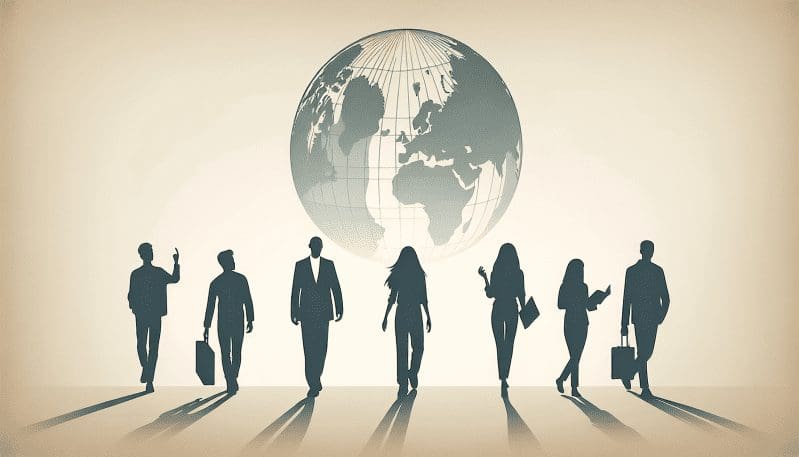In the picturesque Swiss town of Davos, global leaders, influencers, and visionaries gathered for the annual World Economic Forum (WEF) 2024. The agenda was both ambitious and timely: ‘Rebuilding Trust’. As the conference halls buzzed with discourse on economic resilience, social inclusion, and environmental sustainability, a crucial takeaway resonated with those beyond the snow-capped peaks – the imperative of trust for the global workforce.
The concept of trust is foundational to all forms of human interaction and it is particularly critical in the world of work. Trust in employers, in governments, in labor institutions, and trust among workers themselves is a keystone for successfully navigating the complex terrain of the modern international labor market.
In the aftermath of Davos 2024, it is clear that trust, or the lack thereof, profoundly impacts economic, social, and environmental progress. The echoes of discussion from the summit bring to light the trust deficit that plagues our interconnected world, and the urgent need to bridge this gap for collaborative progress. How do we, as a global workforce, move beyond the rhetoric to actualize the principles and ideas championed at Davos?
For starters, transparency is key. Companies that maintain open communication channels and make transparency a core component of their ethos are laying the groundwork for trust. For example, Salesforce’s model of integrating ethical values into its business operations has engendered trust among its stakeholders. Regular, candid conversations about challenges, successes, and failures can humanize corporations and foster loyalty and faith among employees.
Ethical leadership is another pivotal element. Leaders who demonstrate integrity, fairness, and a genuine concern for their employees and the broader community inspire trust. New Zealand’s response to the COVID-19 pandemic, led by Prime Minister Jacinda Ardern, emphasized empathy and clear communication, winning her not only national but international trust and admiration.
Amidst the complex dynamics of global economic systems, there is considerable potential for a united global workforce to become a force for positive change. Case studies such as Denmark’s flexicurity model showcase how a collaborative approach between government, employers, and workers can lead to a more adaptable and secure labor market. This trust triangle facilitates an environment where workers are willing to embrace change, knowing they have both the support and the safety net needed to adapt to the evolving economic landscape.
Businesses, governments, and non-profits must work in synergy to build and maintain trust. The benefits of such partnerships can be seen in initiatives like the UN Global Compact, which encourages companies worldwide to adopt sustainable and socially responsible policies, and in doing so, builds trust across international markets.
To contribute to a more trusting and cooperative global work environment, organizations can implement actionable strategies such as investing in employee development, promoting inclusivity, and ensuring accountability at all levels of operation.
Conclusively, as we ponder the insights from Davos 2024, it is imperative to acknowledge that trust is the thread that can weave the global workforce into a tapestry of collaborative progress. For the readers of The Work Times, the question remains: how can we each, as individuals and collectives, contribute to this grand narrative of trust? The dialogue continues, and it is through thoughtful communication, commitment to ethics, and purposeful action that we can transform these dialogic threads into tangible outcomes for a more united and prosperous world.
In inviting you to this dialogue, we encourage the sharing and exchange of perspectives. Trust is, after all, a mutual construct – let’s unite to rebuild it for a brighter, more collaborative future.


























